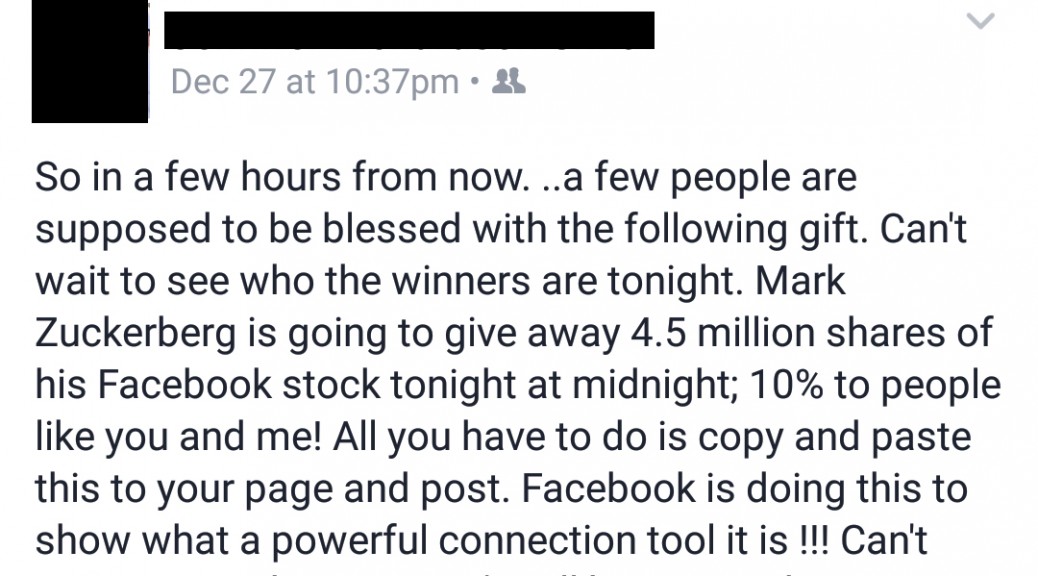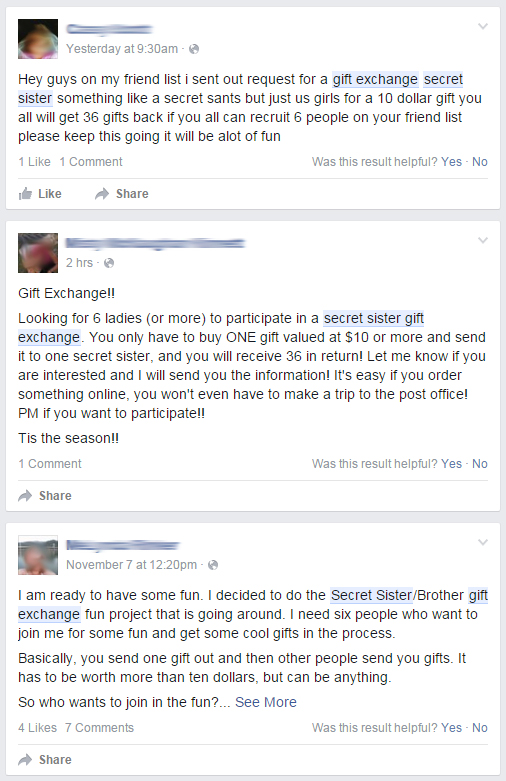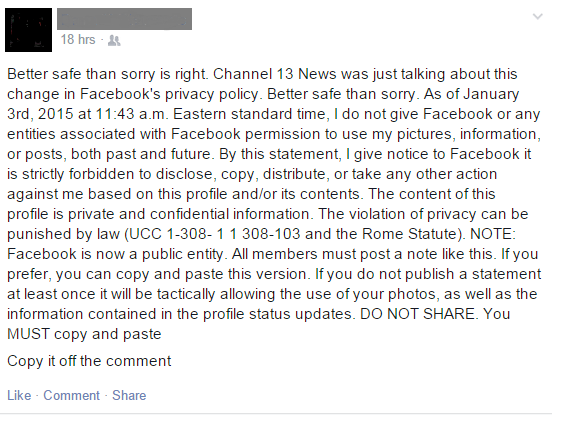When I was checking my Facebook News Feed this morning, I found this message.
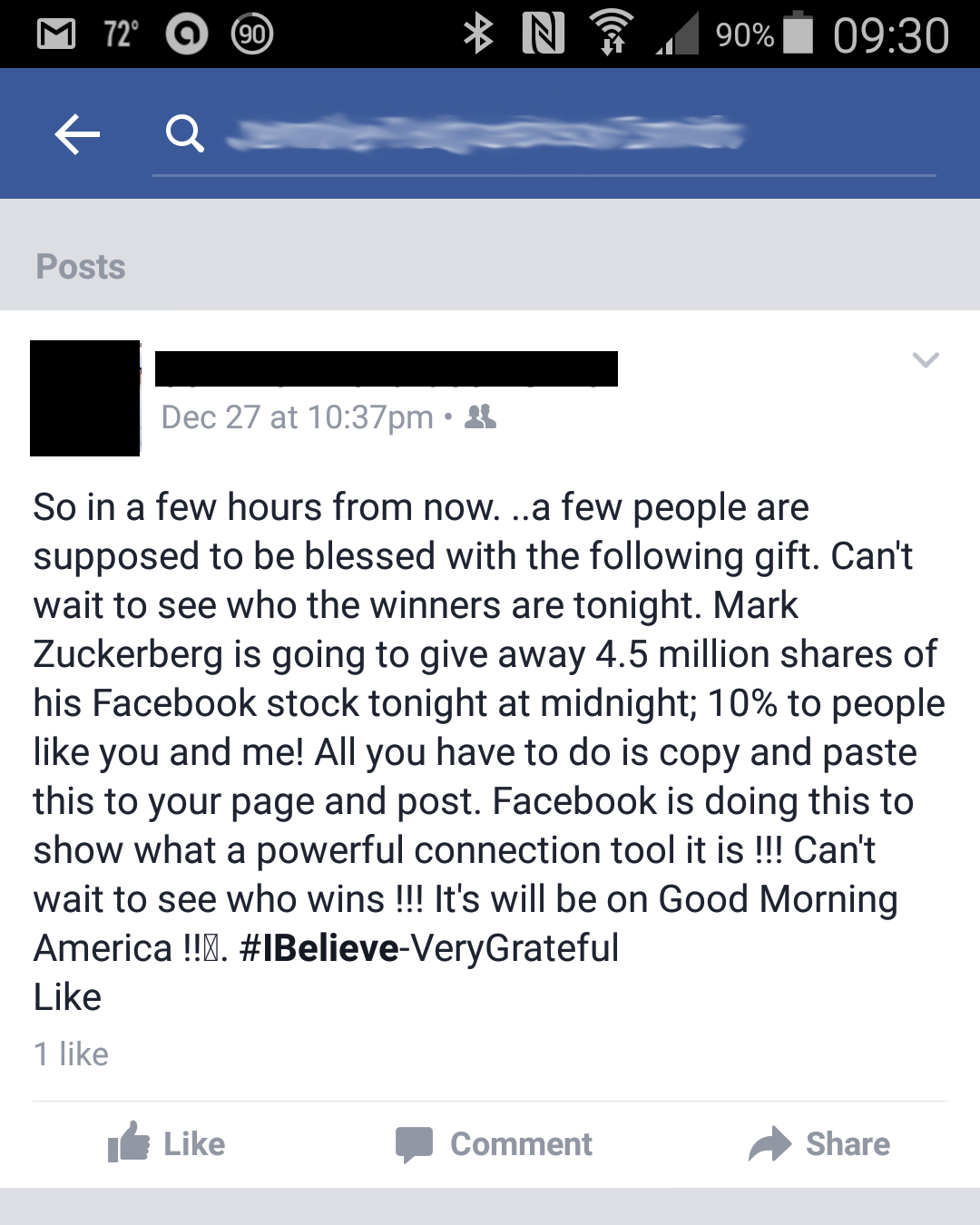
Facebook newsfeed hoax
It seems one of my friends was very excited because Facebook founder, Mark Zuckerberg, was scheduled to give away 4.5 million shares of Facebook stock at midnight. To enter this lottery-like giveaway, all you had to do was copy and paste the message to your own news feed. The message, and variations like it, go on to say that the winners will be announced live on today’s Good Morning America. Other variations look like this,
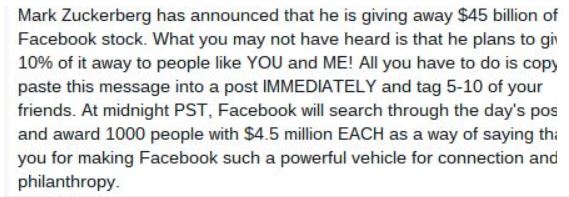
Facebook hoax image via metro.co.uk
Like others before it, this viral Facebook message is a hoax. You will not be entered by copying and pasting a message. And Mr. Zuckerberg is not giving away 4.5 billion dollars to 1,000 random Facebook users. If this message makes its way to your News Feed, please do not copy and paste it or share with your friends. The best action is to delete it and maybe go buy yourself a lottery ticket. The odds will be a little better. ![]()
Using surveys to better understand viral stories
Facebook is actually doing something about these hoaxes. Early in December, the Facebook newsroom published a News Feed FYI: Using Surveys to Better Understand Viral Stories. In the article they described how they have started using surveys to improve the news feed experience. Every day they ask thousands of people to rate their experience, share suggestions for improvement, and help them infer what might be an interesting story so they can work their algorithms to take that into account when ranking. Here’s what they say about that,
People also take story surveys where they see two stories that could be in their News Feed and answer which they’d most want to see. We compare their answer to the order we would have put these stories in their News Feed. If the story picked is the one News Feed would have shown higher up, that’s a good sign that things are working well. If the story picked is the one we would have put lower down, this highlights an area for improvement.
So if you receive one of these surveys, make sure you fill it out – your feedback will help to eliminate this type of clutter in everyone’s News Feed. ![]()
Follow Avast on Facebook, Twitter, YouTube, and Google+ where we keep you updated on cybersecurity news every day.
![]()
